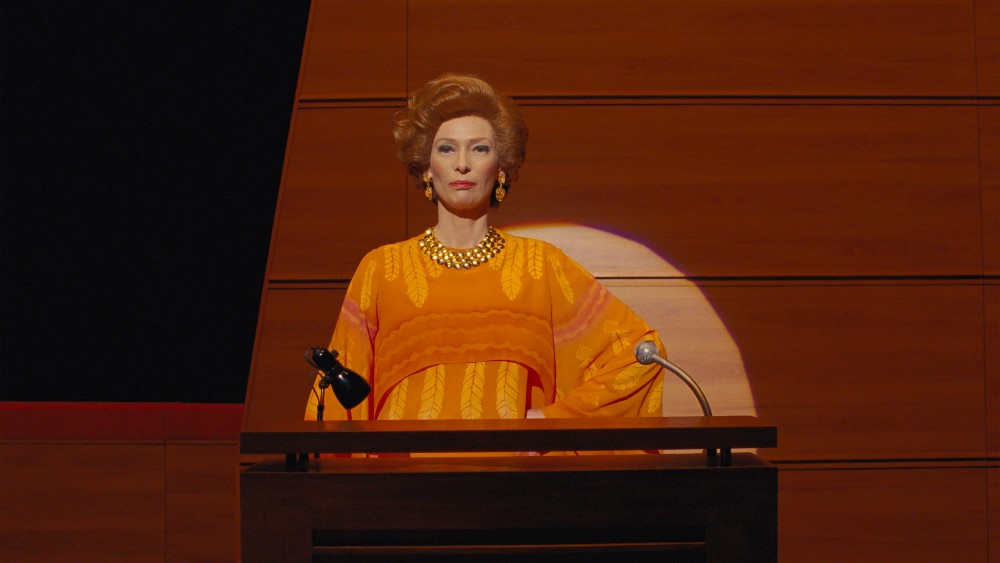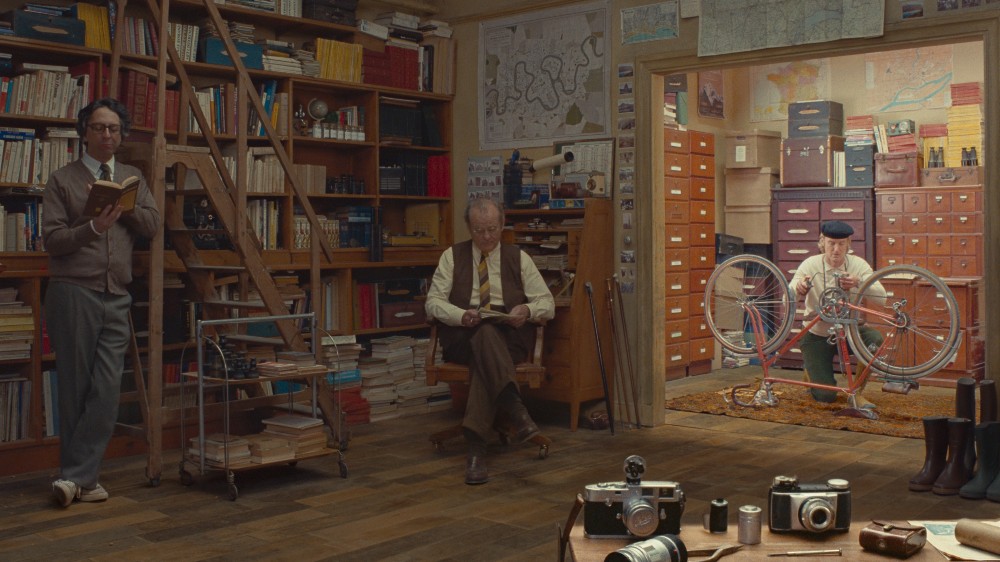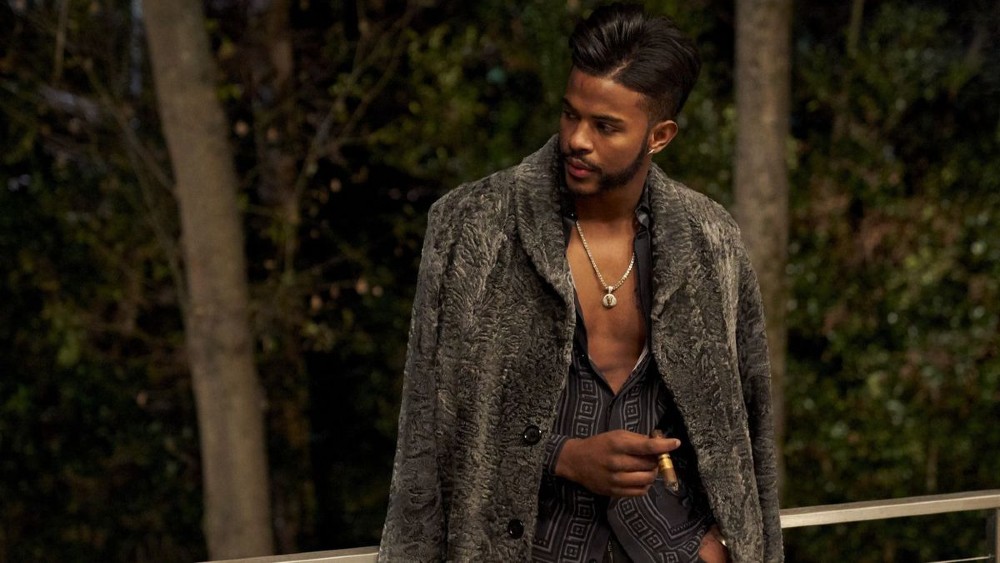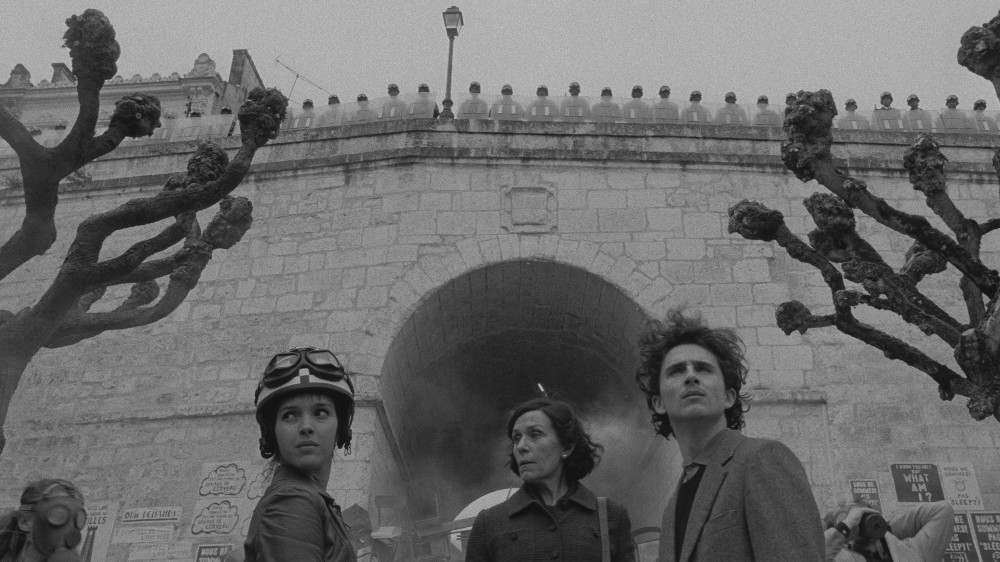
If you were to look at Music Supervisor Randall Poster’s filmography, which goes back over 26 years, your jaw is likely to drop when you see all the movies he has worked on in that capacity. It’s not just that he has been music supe on nearly all of Wes Anderson’s movies dating back to Rushmore, but he’s been performing the same duties for Todd Haynes’ movies for almost as long.
In fact, if you were to look at how many movies and filmmakers that are sometimes more known for their music than any plot or anything else in their films, then you are likely to see Poster’s name in the credits. This is no exaggeration.
This year alone, Poster is credited for a James Bond movie with No Time to Die, a big-budget action-VFX movie in The Tomorrow War, the upcoming Sandra Bullock drama The Unforgivable, and of course, Wes Anderson’s latest movie, The French Dispatch. Granted, some of that work is supplementary around the score as with Bond, which was put into the adept hands of Composer Hans Zimmer, but then other movies Poster works on rely almost ENTIRELY on the music and/or performances. For example, The Lonely Island’s underrated classic, Popstar: Never Stop Stopping.
Below the Line got on the phone with Mr. Poster a few weeks back, mainly to talk about his work with Anderson on The French Dispatch, but we got into other aspects of his role on some iconic films. Poster definitely has a rather wry and sardonic wit as well, which may be partially has rubbed off on him from working with some of his regular collaborators.
Below the Line: I have to say that I’ve been a fan since Velvet Goldmine and A Life Less Ordinary. I think that’s the first time I saw your name on something and I thought, “Oh, this guy helps put together this great music.” I don’t think I realized all that a music supervisor does until probably very, very recently.
Randall Poster: Well, maybe you can explain it to my mother.
BTL: I spoke to Ed Bailie, who was the music supe for Small Axe Anthology for Steve McQueen, and I learned a lot from him.
Poster: Yeah, that was the best. That was my favorite piece of music of whatever it was, last year. The last two years blur, but I loved it.
BTL: I saw that your first credit was music supervisor on Kids, which was a pretty major breakthrough indie feature for almost everyone, including the actors. How did you get involved and get into that role for the movie?
Poster: You know, somebody gave me the script, and the title page of the script said, “Kids by the world-famous writer Harmony Korine.” And I just was like, “I have to meet this guy.” And so, I was introduced to Harmony, and we sort of bonded over music and became very friendly, and that’s how I made my way into Kids.

BTL: Did you already have some idea what a music supervisor’s role on a movie was at that time?
Poster: My background is that I graduated from college, and I had no real professional direction. Figuring I needed to do something to forestall doing something like going to law school, I wrote a script with a friend of mine about the college radio station, and it was called A Matter of Degrees. Once we wrote it, we somehow managed to get it out into the world a little bit, and people were interested in buying it, and we were interested in making it. And so, we were accepted into the lab at Sundance, and we raised the money, and we made this movie in 1990. That was sort of a moment where what they had been calling “college radio” became “alternative music.” I oversaw the music, and we recorded a lot of songs, and I thought the song element was very strong. The movie really had very little commercial impact, but people really liked the music, and we did a soundtrack at Atlantic Records, and I decided that really, what I wanted to do was work with great film directors. And that if I made music my focus, that would be the point of contact. That’s kind of how it worked out. I really had got into it by just having the proper experience doing it, because we were making a movie and somebody had to do it, and I was always very into music and movies. It was somewhat instinctive in terms of how to use music in the movies, and then otherwise, then in terms of the practicalities of licensing and all of that, I picked up along the way.
BTL: From talking to Ed Bailie, I feel there’s a lot more legal and administrative parts to the job, which I’m not sure people realize, since they think if they’re into movies and music, it’s an easy role to take on.
Poster: There are situations where you get help doing that aspect of it, but there definitely is a rights element and a financial element, budgetary issues on almost every movie, so the responsibilities are generally more than just the simple creative.
BTL: I’ve learned in recent years that music supervisors are generally involved in the script stage, sometimes well before movies start shooting. Is that always the case?
Poster: In my experience, now, it’s generally the case. You tend to get involved early on when there’s an on-camera musical component, where they’re going to be shooting some musical element. Then, it becomes imperative that you get involved, because you have to prepare for it. Generally, I get involved early on, especially with the directors that I have long-term relationships with.

BTL: That’s a good transition into working with Wes. He’s done movies like Life Aquatic, which had on-screen performances from Seu Jorge, but then French Dispatch doesn’t have nearly as much of that. Then again, his latest may achieve a new level in terms of his eclectic musical tastes.
Poster: By virtue of the fact that being an anthology made it more unique, but Wes and I, I think we started working together like the day we met, and we haven’t stopped, in the sense that a lot of the work gets done between the movies, in terms of establishing a palette for a specific movie. So, in terms of French Dispatch, just making sure we were listening to all the various French pop tunes, scores by specific French composers, and then just sort of like the more eclectic choices that just sort of come to me. With that, there is almost a virtual on-camera element in terms of this version of “Aline” that the fictional character Tip Top performs and preparing that with Jarvis Cocker.
BTL: Is there a period where you’re sitting in a room with Wes for hours listening to different types of music?
Poster: I think [under] the current circumstances, we’re sitting in different rooms listening to it, but we go back and forth with each other in terms of the digital age. It’s not so much predicated on our being together. I think we spend more time together at the script stage. I’m lucky enough to be one of the early readers of Wes’ scripts, so that’s when we spend more time together. But again, there’s music that we’ve inherited from preparation from other movies that we finally activate or utilize in subsequent films. Things like “Aline” was something that we had been holding on to, and “Le Temps de l’Amour” from Moonrise Kingdom was something that we had been holding on to it, and then “Letter Dance,” which is the end credit piece or ends Fantastic Mr. Fox is something that we held on to for a long time. There’s a musical legacy that we’re able to sort of tap into, based on other conversations and other pieces of music that we respond to.
BTL: Was “Aline” an existing song that Jarvis Cocker had already covered?
Poster: No, so “Aline” was a big pop hit for an artist named Christoph, and it was a song that we loved. The challenge with that, because you don’t see Tip Top is that “Aline” is like a national anthem in France. We knew we had a pretty avid fanbase in France, and so we knew that if you say, “Oh, this is Tip Top,” people are gonna go, “Non! That’s not Tip Top, that’s Christoph!” Jarvis is somebody that we’ve worked with quite a bit and is a good friend of ours, so we just thought that was a way to give it more of a bit of a novelty for everybody.
BTL: When Wes gives you a script, does it have a few songs written into it?
Poster: No, no, the example I would give is that for Life Aquatic, the only musical note was [Seu Jorge’s character] Pelé goes on deck and performs a David Bowie song in Portuguese. That was it, and then ultimately we recorded 13 David Bowie songs in Portuguese.
BTL: I love that soundtrack.
Poster: Me, too.
BTL: Some of Wes’ movies, I just love as a whole and can’t separate the music, but then there are some like Life Aquatic where I’ve just listened to the soundtrack so many more times than actually seeing the movie.
Poster: Oh, good. That’s nice to hear.

BTL: You’ve also done some movies where the music brings so much more to my enjoyment of a movie than it might have otherwise. Superfly is a good example, because that was just an incredible soundtrack.
Poster: What’s interesting is that somehow, I feel like that soundtrack didn’t… I mean, the movie didn’t really break through in the way I think they were hoping, but I really liked that soundtrack, too.
BTL: I wondered if there’s often or ever a disconnect where a soundtrack can do well even if the movie doesn’t really do well in theaters.
Poster: It certainly helps. There definitely have been movies where say, the soundtrack made more of an impact than the movie. For instance, this film I worked on called Country Strong. That soundtrack kind of exploded out of the gate and did very, very well. Definitely, when more people see the movie, I think that more attention is given… I think with Superfly, really, in this world of hip-hop, there’s so many records that come out, like every week, there’s an event record that comes out, and I think it somehow, it got a little bit lost in the shuffle. But there’s some great tracks on there.
BTL: Going back to French Dispatch, another aspect of the movie is the score by Alexandre Desplat, so how much communication do you have with him over the course of the movie? I don’t know if he got involved early on in the script stage as well.
Poster: We’d been working on movies together — Wes, Alexandre, and I… Alexandre lives in Paris, as Wes mostly does, so they spend time together in the studio that I’m not a voice in that room. But then in terms of, when say Alexandre presents some demonstrations or some sketches, Wes seeks me out to get my take on it. We have a friendly collaborative relationship, but I don’t need to be in the middle of that conversation.

BTL: Was French Dispatch completely done before COVID? I know it was originally going to play at Cannes in May 2020. How does COVID affect what you do? You can’t be in the room with someone, as you mentioned.
Poster: During that period, I had a couple of projects that were in post-production, so those were things that I could continue to work on. There were a couple of movies that went into production, which were following very strict protocols, where I wasn’t allowed to be on set. And at certain points, I wasn’t to get onto an airplane to go to a location. Certain movies didn’t start shooting because of COVID. But in a sense, a lot of the work that I do is through the wires anyway, so my life was changed, but I don’t know that I would be able to say how my movie life was impacted any differently than my whole life.
BTL: I understand. I assume you have an office, and you probably weren’t going into the office as much and just working from home.
Poster: I have an office that has no elevator and the windows open, and there was nobody there. I actually was, at a point, going into an office.
BTL: I want to ask about another filmmaker you’ve worked with. I actually want to ask about EVERY filmmaker you work with, but Martin Scorsese is a classic case, since his movies are frequently known for their so-called “needle drops.”
Poster: I mean, his movies really taught us or expanded the boundaries of our notions of how you could use music in movies. Working with Scorsese, it’s one of the great treats that I have in terms of just his enthusiasm, his love of music, his bold use of music, and just his commitment to music. I think that makes him just really fun and exciting to work with.
BTL: You’ve definitely worked with the three best filmmakers as far as music goes — the third being Todd Haynes, of course. With other directors you work with — I mean, you don’t have to name names — but are some of them more knowledgeable about the music stuff than others, making them easier to work with?
Poster: I would say that the challenge sometimes in working with movies is, say you’re making a movie that’s set in the ’70s. Everybody’s an expert on the music in the ’70s, so that’s hard to navigate, or people have a lot of baggage with music, like, “Oh, that was my favorite song in high school,” or whatever it is. That becomes a challenge, because the pieces mean personal things to people, and then of course, there are directors that have no feel for it.
BTL: I’d also like to talk more about the differentiation between movies, like you mentioned, where they have a performance element, like Popstar: Never Stop Stopping, another one of my favorites. When it’s very music-driven vs. something like Joker, which is score-driven, but probably has some music in it.
Poster: Because the songs — and I mean in both those films — but in Joker, the song element had to be really very precise. Todd Phillips is another director who’s very, very good with music.
BTL: Are you still very heavily involved with the soundtrack albums, as well? Is that part of the gig?
Poster: In terms of putting them together. Unless they’re coming out on vinyl, people are not really buying records, they’re streaming records. I don’t know if you’ve seen Todd Haynes’ Velvet Underground movie, but that soundtrack just came out, and Todd and I produced it and put it together.
BTL: So you’re very much involved from the beginning with the script and are still working on things like soundtracks once the movie is already out?
Poster: Yeah, that’s why I’m tired all the time.
The French Dispatch is still playing in theaters nationwide. That The Velvet Underground is available to stream on Apple TV+. Most of Randall Poster’s other films are available to rent and watch or stream and buy, as are the soundtracks for many of those films. It’s a rabbit hole that’s quite a joy to travel down, believe us.
All The French Dispatch courtesy and copyright Searchlight Studios. Superfly photo courtesy Sony Pictures. Others as noted.





